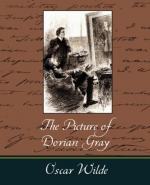|
|
The Picture of Dorian Gray Chapter 11
Years pass, and Dorian Gray does not lose any of his youth or physical beauty. Rumors circulate about him doing evil things, but when people actually meet him they find it hard to believe that he is anything but a wonderful person.
He periodically looks at the painting, aging and becoming hideous, with a sense of satisfaction that it is aging, and not he. He entertains guests several times each month and becomes quite a large figure in society. He thinks that what Lord Henry told him about a new Hedonism is right: " Yes: there was to be, as Lord Henry had prophesied, a new Hedonism that was to recreate life, and to save it from that harsh, uncomely puritanism that is having, in our own day, its curious revival." Chapter 11, pg. 147
In keeping with this, Dorian sets about to find new experiences, whole new worlds where freedom of expression and pleasure are all around: he studies perfumes, jewels, music, embroideries, and seeks to collect the most rare and exquisite specimens of all of these. He does this to forget his secret, and spends weeks away from home only to return and stare at the portrait for days on end. He eventually cannot bear to be away from it for too long--for fear someone might see it and find out his secret--and sells the other estates he has in other countries.
He wanders about his house and sees the portraits of his ancestors, and wonders if he got some of his sin and shame from them. He has not forgotten about the book that Lord Henry lent him so long ago; he reads and rereads passages of the book, studying the wonderful evil things contained in it. "There were moments when he looked on evil simply as a mode through which he could realize his conception of the beautiful." Chapter 11, pg. 165




